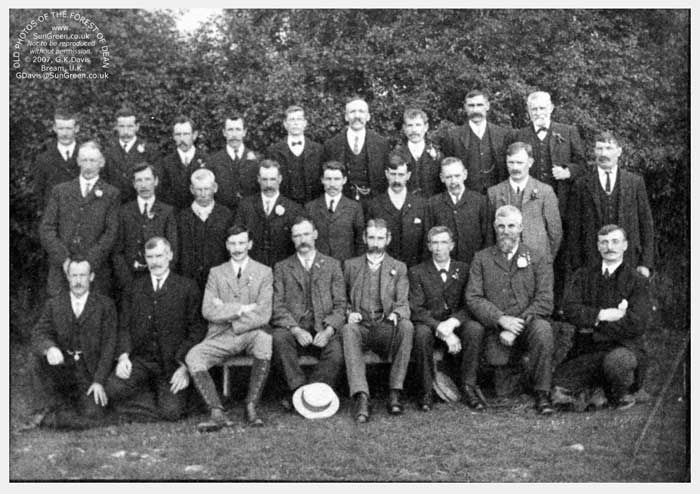Thomas Liddington (1875-1961) was born in Com, Aylburton. He was the son of a labourer who worked in agriculture, coal shipping and as a railway plate layer. Thomas married Mary Niblet in 1898 and they had one adopted son, Albert. The family moved to Parkend in about 1885.
Thomas’s first job was as a railway porter and then by 1901 he was working as a fireman operating a stationary engine probably at a pit head. In 1904 he was working on a gang for the Severn and Wye Railway repairing track near Trafalgar colliery when he was accidentally struck in the arm by another workman with his pick causing a serious wound.[1] He moved to Newland Street in Coleford sometime before 1911 where he worked as an assistant superintendent for the Cooperative Insurance Society.

Thomas joined the Independent Labour Party in about 1908 when a branch was formed in Coleford and started putting forward candidates in local elections. Thomas was elected to West Dean District Council from 1910 to 1925 where he campaigned for social housing and other working-class interests. He was also elected to the Coleford Urban District Council between 1913 and 1919 and was elected as a manager of the Coleford schools. In 1915 he joined the British Socialist Party.[2] In 1917 he was elected to represent Coleford on the Monmouth Board of Guardians and in 1918 he was elected as Secretary of the Forest of Dean Commoners Association. As a representative of Coleford on the Monmouth Board of Guardians Thomas argued in favour of destitute families during the 1921 miners’ lockout in the Forest of Dean where he helped persuade the other Guardians to grant temporary loans.
After the lockout, he became actively involved in the Coleford and West Dean Unemployed Committee whose main objectives were to support the unemployed in obtaining unemployment benefit or relief at the Board of Guardians and to lobby the authorities for work schemes for the unemployed with rates of pay based on trade union conditions of work.
He appears to have disappeared from public life after 1925.
[1] Gloucester Journal 9 July 1904.
[2] The British Socialist Party (BSP) was a Marxist political organisation established in Great Britain in 1911. In 1916, following a protracted period of factional struggle, the party’s anti-war forces gained decisive control of the party and saw the defection of its pro-war Right Wing. After the victory of the Bolshevik Revolution in Russia at the end of 1917 and the termination of World War I the following year, the BSP emerged as an explicitly revolutionary socialist organisation. It negotiated with other radical groups in an effort to establish a unified communist organisation, an effort which culminated in August 1920 with the establishment of the Communist Party of Great Britain.